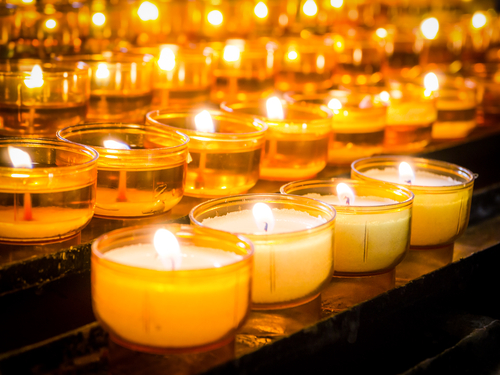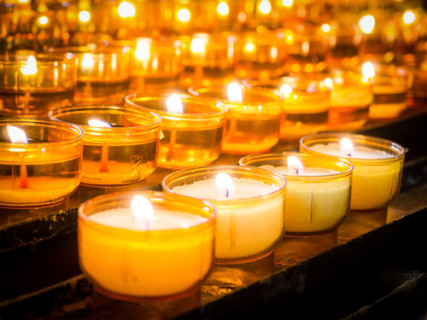
 Sometimes I get asked which of the spiritual practices I undertook for Flunking Sainthood I still observe regularly. I’m certainly not fasting every day anymore. But there are several practices I keep doing, including Sabbath-keeping, the Jesus Prayer, and the Lord’s Prayer.
Sometimes I get asked which of the spiritual practices I undertook for Flunking Sainthood I still observe regularly. I’m certainly not fasting every day anymore. But there are several practices I keep doing, including Sabbath-keeping, the Jesus Prayer, and the Lord’s Prayer.
Reciting the Lord’s Prayer each day is an unusual practice for a Mormon. But why is it so unusual?
The Encyclopedia of Mormonism says that rather than being a prayer that Latter-day Saints are to memorize and recite in full, the Lord’s Prayer offers a general “pattern” for our own spontaneous prayers. It speaks of cultivating a relationship with a divine parent who meets our daily needs, grants forgiveness, and can help us resist temptation.
That’s fine, but it does not explain why there is power in reciting the prayer’s words exactly as written (either in the New Testament or the Book of Mormon, where it also appears in a slightly different version). The Encyclopedia’s approach does not do justice to the transforming power of saying these particular words, no matter how we are feeling or what we are thinking about that day.
Perhaps it is true that Mormons unconsciously use the words of the Lord’s Prayer as a pattern for prayer, but somehow I don’t think so, especially because most Mormons are never taught it. In fact, the manual for the Gospel Principles class, which teaches new members the foundations of a Mormon spiritual life, not only omits mention of the Lord’s Prayer in its lesson on prayer, but goes out of its way to caution against repeating “meaningless words and phrases.”
If Mormons don’t even learn the Lord’s Prayer, how can it be a pattern for prayer or spiritual formation?
The Gospel Principles manual reveals a Mormon suspicion of traditional, rote prayers, a suspicion that is sometimes justified by appealing to 3 Nephi 13’s warnings about “vain repetitions.” I once had a conversation with a woman in Relief Society who was highly skeptical that she could ever feel the Spirit through someone else’s words. Prayer should be extemporaneous, she felt; anything impersonal would be a violation of her own relationship with Heavenly Father.
I asked her to think about the temple ceremony and how it is exactly the same every time—and wasn’t she just saying that she learned something new each time she went to the temple?
And what about our sacrament prayer? That’s a prayer that has to be recited precisely as written every single Sunday. Any alterations will result in a red-faced teenage boy having to start all over again. And yet many Mormons reflect that the familiar words of the sacrament prayer have sunk into their souls so deeply that they can conjure them in any situation, often to their great benefit.
So the argument against rote prayer is not a valid one in Mormon tradition; our two highest ritual forms in fact rely upon such sameness as tool for spiritual growth. Mormonism has always blended personal, spontaneous prayer with repeated formal liturgy. Often, we just don’t realize that is what we are doing.
I’m puzzled that Mormons don’t do more with the Lord’s Prayer. I think it is our loss. This is the prayer that Jesus himself taught us to pray—the only one. For that reason alone we should be all ears. Mormons in particular should pay attention because the Lord’s Prayer is explicitly mentioned in the Book of Mormon from Jesus’ time among the Nephites. If Jesus thought this prayer was important enough to teach in two different settings when many of his teachings in the New Testament were apparently not given the same emphasis elsewhere, why would we not make the prayer a top priority?
In addition to its multiple appearances in Scripture, this is the prayer that the earliest Christians were taught to recite, as evidenced by the spiritual practices recorded in the Didache in the late first century. At that time, followers of Jesus said the Lord’s Prayer three times a day.*
I usually manage once a day. But when I do recite the Lord’s Prayer, it offers a powerful connection to the God I’m addressing, the Savior who taught me how to pray, and the global community of Christians both past and present who have drawn strength from this prayer in every kind of circumstance.
What also strikes me is how this-worldly the prayer is, how quotidian, how very Mormon. It is practical, not ethereal. It’s not about eternal salvation or theology. It’s about manna for today—just today—and strength to move forward. And I need all the manna I can get.
